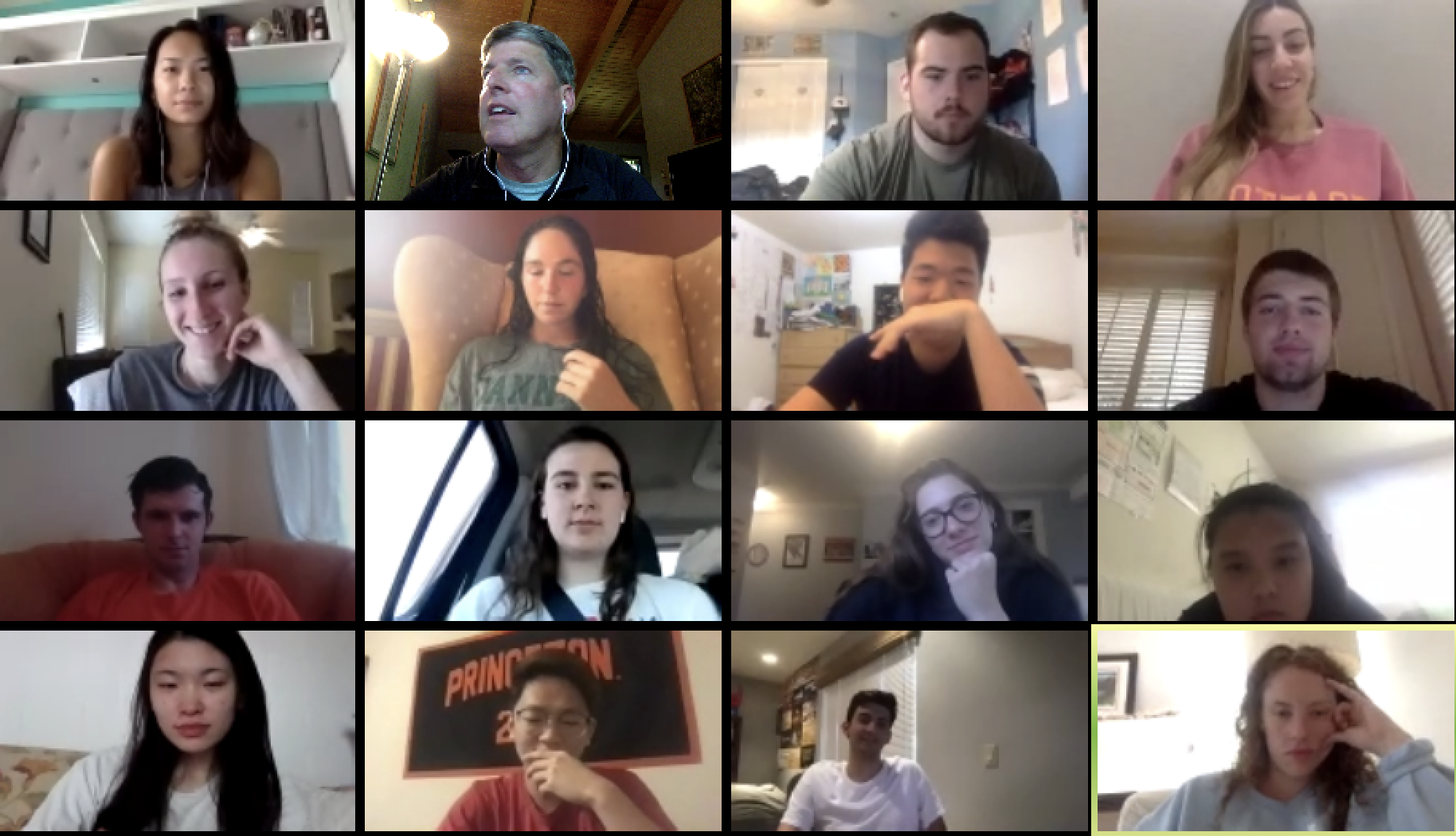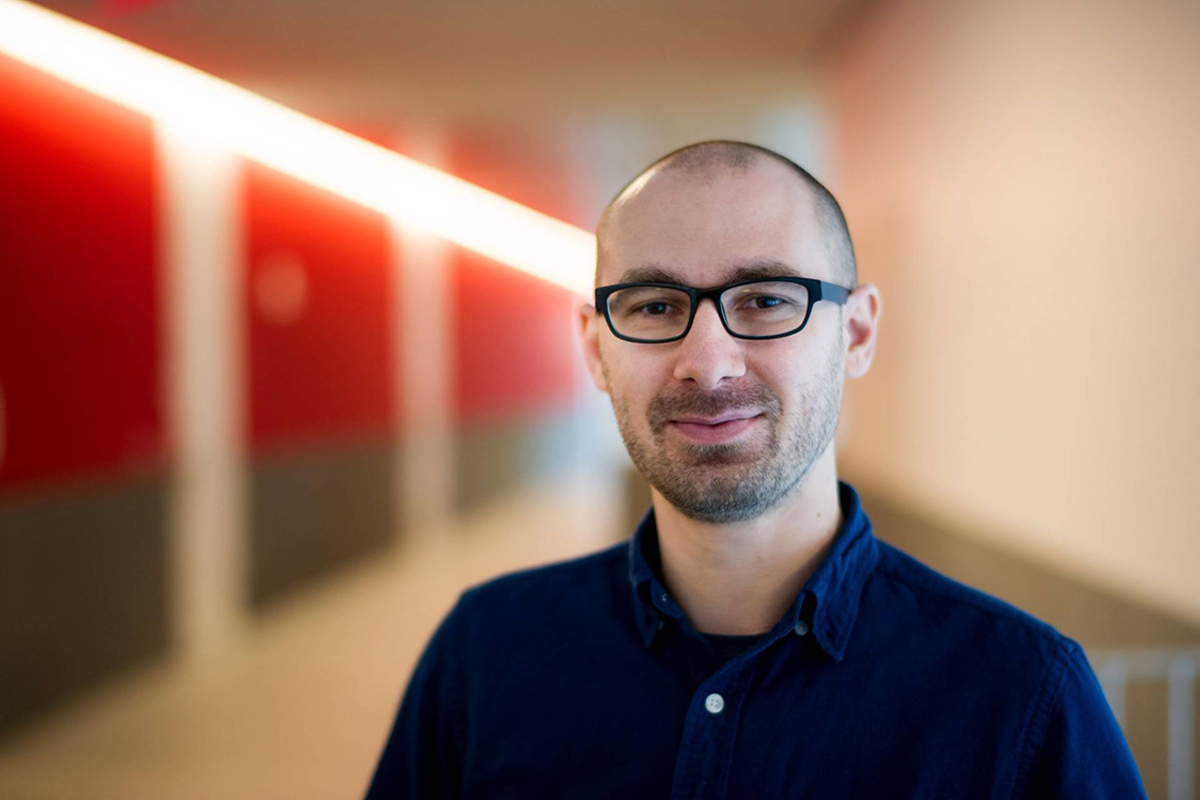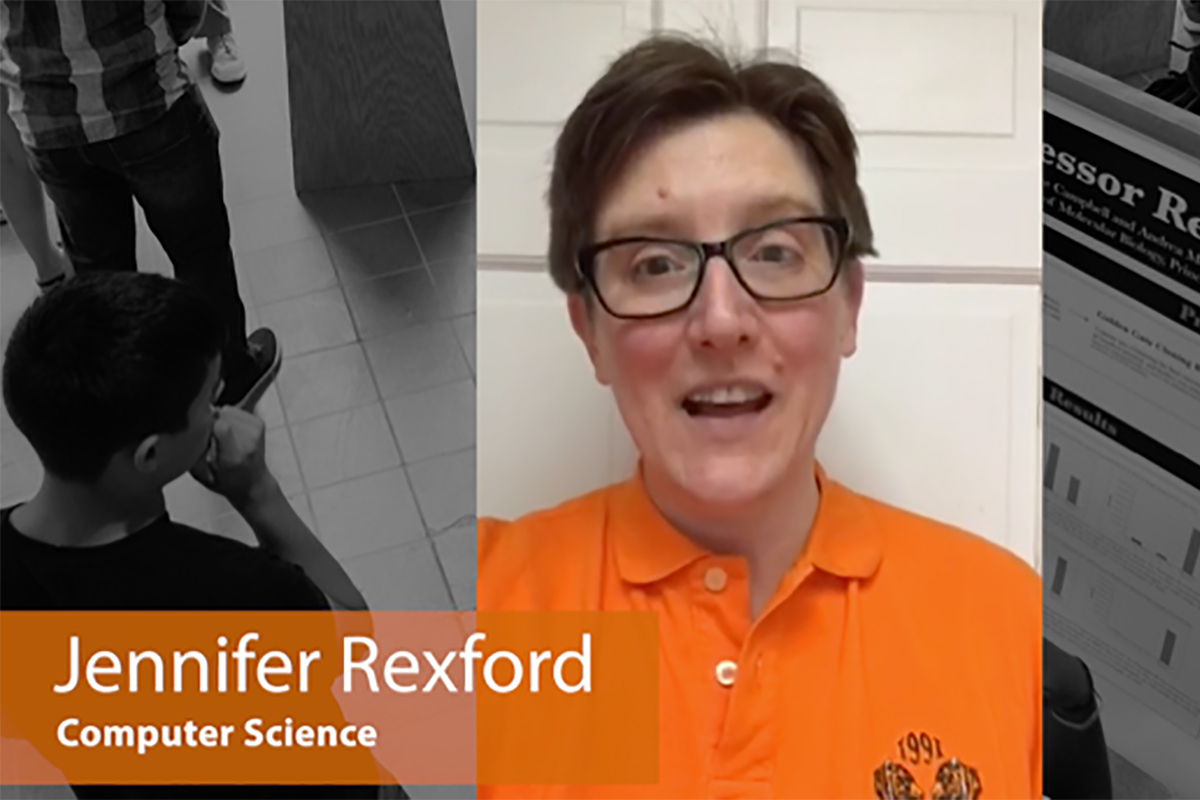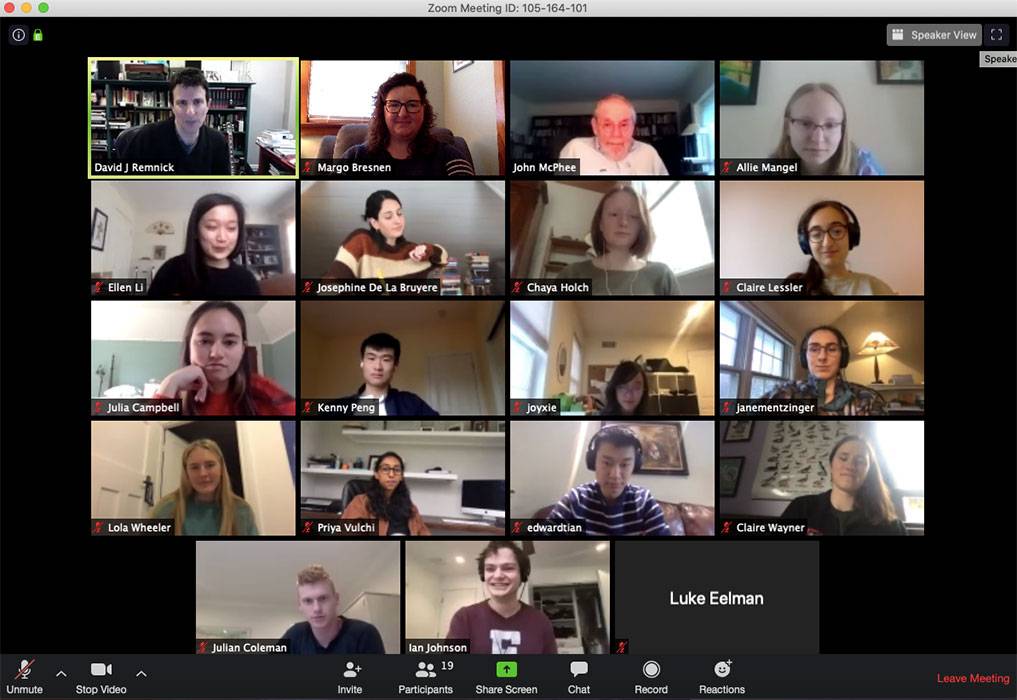
The COVID-19 pandemic had already disrupted some of the quintessential aspects of the Princeton experience after the University shifted to remote learning in March. By early April, it was threatening the undergraduates’ summers as well. With parts of the country locked down and many businesses and organizations operating under at-home work conditions, most summer internships were canceled.
Charles Goldstein *69 *71 was determined to help as many Princeton students as he could. A former senior vice president at Becton Dickinson, he now serves as a strategic advisor for several innovative health care startups. As a member of the board at HALE Sports, he asked CEO Doug Jamison if his company was considering hiring any interns. Jamison agreed this was a great opportunity, both for undergraduates and HALE, which develops personalized data-driven training and health management plans to optimize athletic performance. He proposed taking on three or four interns. Goldstein wondered if HALE had the capacity to host even more students. After all, these would be unpaid virtual internships and wouldn’t require additional office space in their Hoboken, New Jersey, headquarters. Could you take five? Goldstein asked. What about 10 students?
On June 2, Jamison and his team at HALE logged on to a Zoom orientation meeting and welcomed a cohort of 38 college interns — 35 of whom were Princeton students. “It’s unusual to have the number of interns exceed the number of employees by more than a factor of two,” Goldstein said with a laugh.
Goldstein appreciates the educational importance of internships, which can provide experience and mentorship that go far beyond the classroom. When he was doing his own graduate study in chemical engineering at Princeton, he asked one of his professors for information on what it was like to work in industry and what skills employers were most seeking. “He said to me, ‘Charles, this is not a business school. We don’t do that,’” Goldstein said.

After he established himself in his career, Goldstein (pictured, right) looked for opportunities to lend a hand to smart, ambitious students who were asking the same questions he had. When he worked at Becton Dickinson, he oversaw the company’s technology leadership development program, which recruited graduate students and helped develop their leadership skills. Today, he’s pleased how the University’s Center for Career Development is focused on supporting and connecting students with internships at companies like HALE. “Things have changed a lot,” he said. “It’s especially interesting to see the large research universities make this pivot.”
There was certainly a need for such opportunities this year. “Students and recent graduates who were searching for their summer or post-graduation plans when COVID-19 hit in the spring were suddenly faced with an historically challenging hiring environment,” said Kimberly Betz, executive director of the Center for Career Development. “The Center for Career Development developed initiatives to quickly connect students with alumni to get hands-on experience, develop new skills and grow professionally. So far, more than 220 alumni volunteered to assist students, and offered 274 summer internship, job and work opportunities that we compiled and shared with students. We are still welcoming volunteers and updating the list of opportunities and one-on-one career chats provided by alumni.”
James Lee ’23 had planned to be in Washington, D.C., for the summer, interning on Capitol Hill. When that fell through because of the virus, he scrambled to find something else that interested him from a limited number of options. He received a University email that provided a list of alumni sponsored internship opportunities.
“Within the first five minutes of that email being sent out, I hopped on the attached Google doc and I already saw 100 other students on it, and I was just like, ‘Wow, this is crazy,’” Lee said. “I quickly applied to HALE because I wanted to get better at data analysis and gain experience at using data to supplement decision making — which is what happens in politics.”
Lee was one of about 80 Princeton students that applied to HALE for what was initially envisioned as just a handful of internship slots. But once Jamison, who founded HALE in 2017, saw the quantity and quality of the applicants, he and Goldstein devised a new gameplan for nearly 40 interns.
HALE produces a platform that collects clinical lab, genomic, microbiome and performance data about athletes and tracks key health indicators like respiration and heart rate using wearable technology to produce actionable plans that can enhance athletic performance. Since the pandemic, HALE has also modified its monitoring system to detect COVID-19 in its early stages and offered a version of the online tool to businesses and organizations — for free — to help them re-open safely and protect their employees.
With more work to do at HALE than hands to do it, the interns arrived — or logged on — at the perfect time. Jamison arranged eight team projects — ranging from developing additional business segment modules to researching the wearable device market — that students could select to work on, and every intern was assigned an additional individual project. A series of expert online teach-ins also addressed topics such as new precision medicine tools, artificial intelligence, data analysis, and understanding how these technologies can be used.
Working with a team leader from HALE, but setting their own flexible hours from home, the students immediately delivered results. “The quality of the work has been excellent,” Jamison said. “You’re never quite sure if they understand exactly what you’re asking them to do, but they don’t only come back with the work — they come back with intelligent and usable ideas. They research their idea, and some of them have already tried them out. They’ve already exceeded our expectations. And we’re only four weeks in.”
Lillian Stout ’22 never intended to pursue an internship at all. A lacrosse player, she was rehabilitating an injured knee and planned to work two paying jobs near her home in Vermont for the summer. “I wouldn’t have had the resources to move to a city to do an unpaid internship, so it honestly benefited me that they were online,” she said. “When I saw the posting for HALE, I was immediately drawn to it. What they’re innovating is really incredible. It could be really beneficial to so many athletes and teams — a platform where you can see all of your different tests and data that you’re gathering, and how it all interacts with each other. I just knew that I would want something like that.”
Stout chose to join the team that was assigned to redesign the HALE website and improve the cohesiveness of the platform. Within a week, she created an entire new color scheme that clarified the messaging and streamlined the language to emphasize simplicity and branding.
“She did an incredible job — probably 10 times better than what we ever thought someone was going to do,” Jamison said.
“It’s really empowering to see how directly us interns have influence on the platform,” Stout said. “Plus, I realized web design is something I really like, which I didn’t know about myself before this internship.”
The virtual aspect of the collaborations might not allow the daily watercooler interactions that presumably help forge bonds with mentors and fellow colleagues in a more traditional brick-and-mortar internship. But any drawbacks seem to be balanced by the advantages of virtual flexibility and the more informal attitudes of working at a startup.
“It’s a remote internship, but it still feels like an in-person internship because we’re checking in, and we’re constantly getting feedback,” said Lee, who pitched his own project to HALE and gained approval to perform an internal review of the company’s marketing strategy and how it compared to its rivals’. “The bureaucracy at HALE is a lot less rigid, so I can reach out to them whenever and that’s basically what allowed me to take initiative. We’re given a lot of freedom. So I think it’s unconventional, but it works.”




